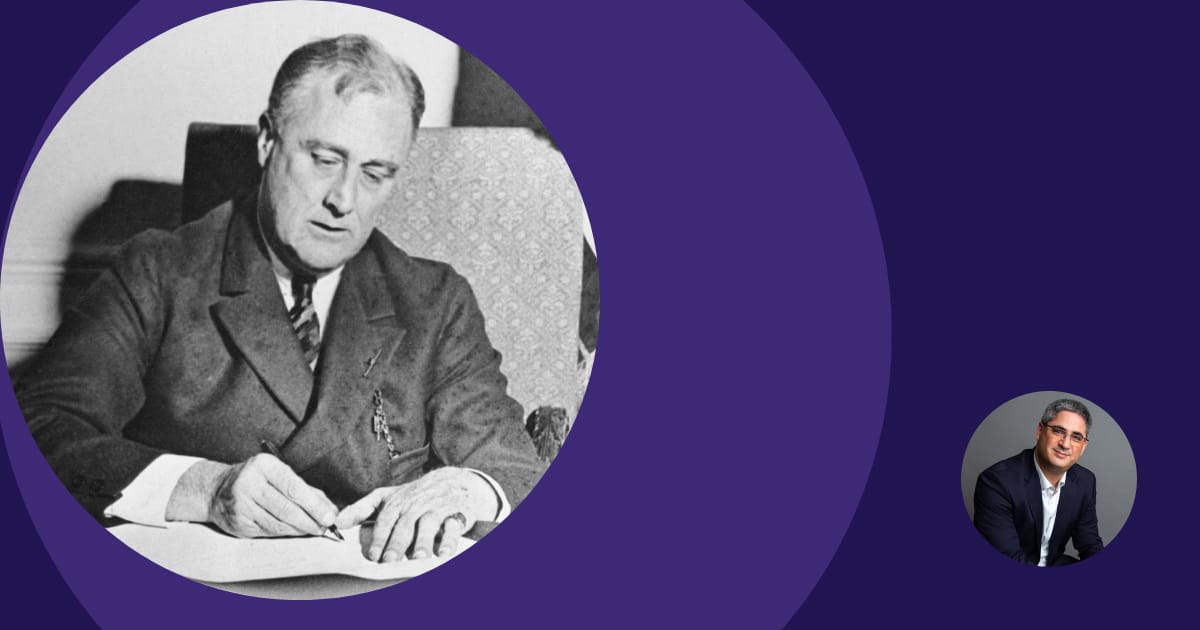
Thanks for reading The Future of Work, your monthly lens on the future of performance, coaching, and engagement.
Living Through a Flock of Black Swans
Ten years ago, if you asked someone what a “black swan” was, most people wouldn’t know. (Some might think the 2010 film with Natalie Portman.)
Today, everyone understands that a Black Swan is a rare, unpredictable event with massive impact, because they have become so common. In the 2000s, we experienced only two major black swans: the dot-com crash and the 2008 financial crisis. The 2010s gave us maybe one, Brexit. But since 2020? We’ve had a flock of black swans. They’ve become the new norm: COVID-19, major wars, economic crises, global inflation, and the post-pandemic tech wreck.
Now we’re entering a new era with AI, and boards everywhere, from Google to Salesforce to Intel, are worried and concerned. Everyone’s looking at costs with a magnifying glass. Margins are shrinking. Organizations are desperately trying to become faster and more agile, often with fewer resources. Companies are investing billions in technology to save on labor costs, only to face massive electricity bills from AI infrastructure.

And then there’s loyalty. Remember when the CEO of AT&T declared in a memo the death of workplace loyalty? We spend so much time talking about the importance of employee engagement, employee experience, and loyalty, and here’s a CEO of a major corporation declaring it dead.
But here’s where I disagree with that approach: if you have 10,000 employees and you can help them reskill and upskill to adapt to new roles, you’ll not only end up with the best person for the job but also preserve loyalty. Instead of hiring new people who require months to onboard, you are developing people who already understand your business and processes.
The Need for a New Deal 2.0
As we witness a wave of technological transformation, I believe we’re living through a fundamental breakdown of the social contract between employers and employees.
In 1929, when the Great Depression brought the global economy to its knees, U.S. President Roosevelt came up with the New Deal, reimagining the relationship between workers, companies, and the government. It was a success.
Today, we need a New Deal 2.0.
The Three Waves Reshaping Work
I’ve often said that we’re seeing three major disruption waves transform organizations simultaneously. I’ve written about these waves in detail before, but let me briefly recap them here:
First, automation. AI agents are taking over simple tasks, which means human employees, especially frontline workers, will handle complex tasks. This requires us to treat employees as skilled talent, not task-executors, and invest more heavily in their development.
Second, mobility and evolving roles. Traditional career paths are disappearing. Many roles in many industries are transforming drastically.
Third, AI-human hybrid teams. We’re moving toward collaborative teams where humans and AI agents work together. This isn’t science fiction; it's happening right now.
The challenge is that we’re approaching all of this with an outdated employment contract. The old rules don’t apply anymore.
Building a Harmonized Workplace
The new role of managers today isn’t to monitor employees and review reports. It’s to be their coach. It’s to identify how to help each employee to become a better version of themselves. This takes connection, empathy and creativity.
But coaching at scale only works if we embrace personalization. Just as Netflix curates a unique homepage for every user and Spotify builds playlists tuned to individual tastes, workplaces need to create personalized employee experiences.
Think of the people on your team: no two are alike. Jane the sales associate, for example, isn’t just another number on a dashboard. She has her own motivations, strengths, and learning style. She needs success measures, development goals, and coaching tailored to her, just as every person on your team does.
The Infinite Loop of the Future Workplace
This leads us to what I call the “infinite loop” of the future workplace: a continuous cycle flowing seamlessly between leadership, frontline managers, frontline employees, and the AI agents of today and tomorrow. Think of it as a symphony where every part plays in harmony toward shared goals.

Within this loop, feedback moves in every direction, each layer informing and strengthening the others, amplified by AI:
Employee Experience: Each frontline worker follows a personalized journey with real-time performance insights, and development support aligned to their unique needs.
Manager Experience: Managers receive an AI copilot, that helps them become better coaches themselves. Instead of drowning in reports, they get actionable guidance that helps them coach more effectively.
Leadership Experience: Executives gain organizational intelligence through AI-driven insights, making it easier to identify what’s working and not working across the organization.
AI Agents: Digital workers augment rather than replace human effort, continuously learning and enhancing performance at every level.
When these four rings work together, they create a more agile organization—equipped to respond to black swan events and constant disruption with resilience, clarity, and confidence.
The New Employment Contract
None of this can work without a fundamental shift in the employee-employer relationship.
Organizations must give their employees real opportunities to grow and evolve. We need to build AI-first organizations where people start thinking like engineers: constantly building, testing, and iterating. This new reality requires a willingness to continuously learn and adapt, and genuine investments in employee development and internal mobility.
AI tools work best when humans can experiment with them, customize them, and continuously optimize their use. Engineers seek new solutions, run experiments, and iterate constantly.
The stakes couldn’t be higher: the skill gaps will only widen.
We have the tools, the technology, and the insights to create better workplaces than we’ve ever had before. What we need now is the courage to fundamentally rethink the relationship between employers and employees.
Did you find this article helpful? Share The Future of Work newsletter with a colleague!